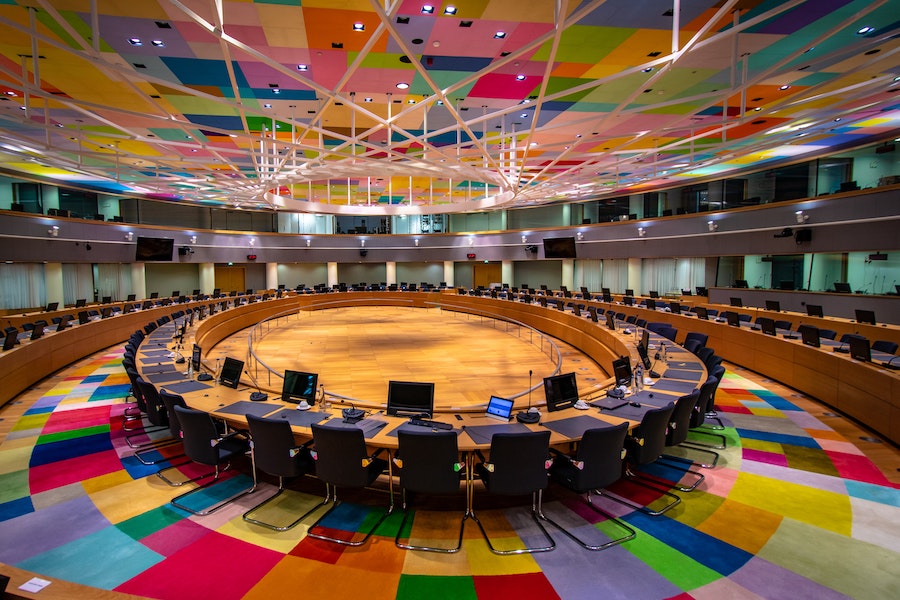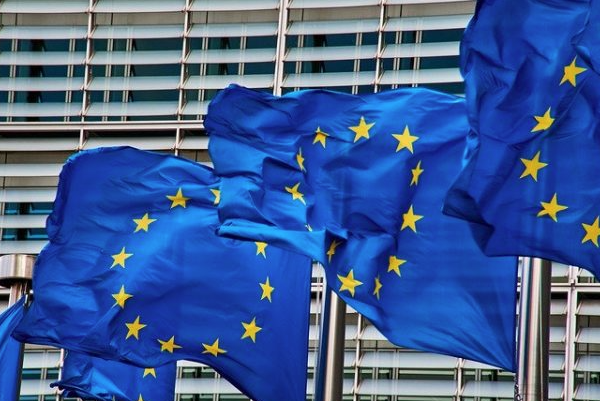
Looking back: Which EU policies progressed in 2020 and where are we now?
December 9, 2020
The Portuguese Presidency of the EU: What’s in store?
January 13, 2021Over the past year, many nonprofits have massively upscaled their use of digital for fundraising, service delivery, project management, team working and so much more. And yet, cryptocurrencies remain something of an unknown for many. In this interview, Anne Connelly, a leading Bitcoin fundraising expert, shares her insights with Fundraising Europe around what nonprofits need to know when getting started with cryptocurrency donations.
[Fundraising Europe] Bitcoin and Blockchain are not particularly widely used as yet for charitable donations. What are the fundraising opportunities for nonprofits?
[Anne Connelly] Giving online using the internet was once unknown too. The idea of incorporating it into a successful fundraising programme was uncomfortable for fundraisers. But now it is a mainstay of a quality fundraising programme. In fact, it would be difficult to find one that doesn’t have online giving. The same shift will happen with cryptocurrencies – it’s only a matter of time before every nonprofit is accepting donations in this form. By examining cryptocurrency donations, fundraising organisations have an opportunity to future-proof themselves.
Bitcoin isn’t new to the fundraising world – the RNLI, for example, has been accepting Bitcoin since 2014. But it’s only recently that charities are really starting to take notice and appreciate the potential of this opportunity to engage new donors.

Anne Connelly, Singularity University
The success of cryptocurrencies has created a new generation of wealthy donors. To understand the opportunity this has created for fundraisers, take a look at the second-largest cryptocurrency platform today, Ethereum. When Ethereum launched in 2014, a single ether was valued at €0.25. At its height in January 2018, Ether traded at just over €1155. To put it simply, someone who invested €215 in Ethereum during the launch would have seen their portfolio grow to nearly €1M in just four years.
In 2020, the University of Cambridge estimated that the current number of active users of cryptocurrency is 101 million people. And this is just the beginning. Just recently, PayPal has announced that it plans to allow cryptocurrency as a funding source for purchases at 26 million merchants worldwide. As we write this, the total value of all cryptocurrencies is over €412 billion and growing.
While fundraisers are generally familiar with the phrase, “You don’t get what you don’t ask for”, when it comes to cryptocurrency, you also don’t get what you can’t accept. So why should charities pay attention? Because many crypto holders have the potential to make a major gift and yet only 4% of charities accept cryptocurrency.
Who is likely to donate in this way?
Many charities will have a profile for their “average donor”. However, for crypto donations, a perceptive fundraiser will set aside that profile completely. The cryptocurrency community is one of the most distinctive donor communities in the world.
It is important to understand that the members of this unique community are all working to conceive, build, and grow blockchain technology as a part of a global network of people. Their desire to see the success of this technology is not motivated by personal gain, it’s about believing in, and contributing to something greater than themselves — a quality that is shared with many people in the charitable sector.
To cultivate a gift in crypto, you’ll need to look at the community with a completely open mind about who may be interested in your work and have the capacity to make major gifts. Unlike typical major donor events or galas, at a crypto event, the person with the most capacity to give could be a 21 year old wearing a purple unicorn t-shirt.
Within the crypto community, there are niche groups a donor might belong to or blockchains they prefer to build on that will tell you a lot about what they care about. Learning about the unique characteristics of the community, donor expectations for stewardship, and what type of projects they will support will go a long way to making your crypto donation programme successful.
What about the risks? There are often concerns as to whether people can really trust digital currencies and whether it’s costly. What are your views?
Historically there was a stigma about cryptocurrencies and blockchain, but today, reputable companies like Microsoft, Facebook, IBM, global banks, and many governments are working with the technology.
The beauty of a cryptocurrency donation program is that you can set it up in a way that matches your organisation’s risk tolerance. In the same way that some organisations will sell stock donations immediately upon receipt while others hold and manage their own portfolios, each organisation can choose a level that meets their needs. In essence, accepting Bitcoin can be even less risky than accepting donations of cash, as Bitcoin can be immediately returned if an organisation chooses not to keep the funds.
The best part about a crypto donation programme is that it costs nothing but time to set up, so if you didn’t put it in your budget this year, you can still incorporate it in your plans for the year and get great ROI.
What are the main principles that fundraisers need to understand before getting started?
What fundraisers need to know is this: you can do it. As with anything new, it may take some time to learn, but there are lots of free resources available to help inform you, and the crypto community is very supportive.
It is important to secure organisational support in order to ensure a successful programme. This means educating yourself on Bitcoin, finding advocates within your organisation, and helping executive leadership to understand the benefits.
From there it’s about deciding what your programme will look like and working with your team to ensure a smooth donor experience from start to finish. Finally, getting a deep understanding of the crypto donor community, where to find them, and what they are passionate about will help you secure a donation.
What are your top tips for nonprofits hoping to making the most of Bitcoin?
The first step for fundraisers is to become a crypto owner, and a crypto donor yourself. Learn how to buy €1 worth of Bitcoin and try donating it to a charity that is currently accepting Bitcoin. It’s easier than you think and you’ll become a part of a new community of people trying to make the world a better place.
Read more in Bitcoin and the Future of Fundraising: A Beginner’s Guide to Cryptocurrency Donations, co-authored by Anne Connelly and Jason Shim.
About Anne Connelly
Anne is passionate about harnessing blockchain and cryptocurrencies to transform the lives of people around the world. Anne is Faculty at Singularity University, teaching global leaders how exponential technologies can solve problems that impact over a billion people. Anne previously worked with Doctors Without Borders as a field worker in Central Africa, as a fundraiser in their Canadian and Irish offices, and as a member of the board of directors. As the Director of Fundraising at Dignitas International, Anne set up one of the world’s first bitcoin donation programmes. In 2015, she was given the AFP New Fundraising Professional Award.
Anne has a Bachelor of Life Sciences from Queen’s University, an MBA from McMaster University, and is certified in Strategic Disruption from Harvard Business School. She was honoured as one of CBC’s 12 Young Leaders Changing Canada and one of the Fifty Most Inspirational Women in Technology in Canada.
Main image credit (Bitcoin): Photo by André François McKenzie on Unsplash




